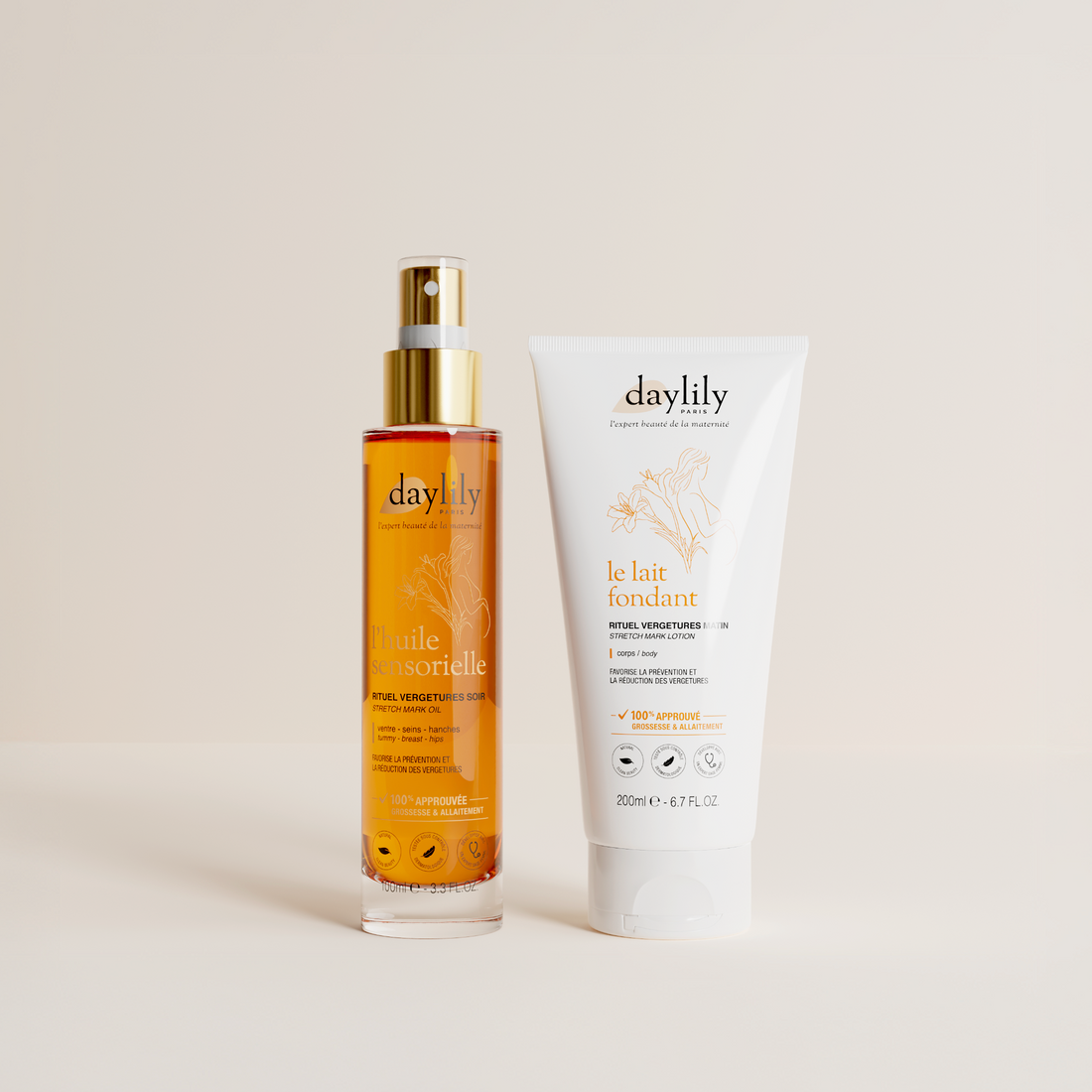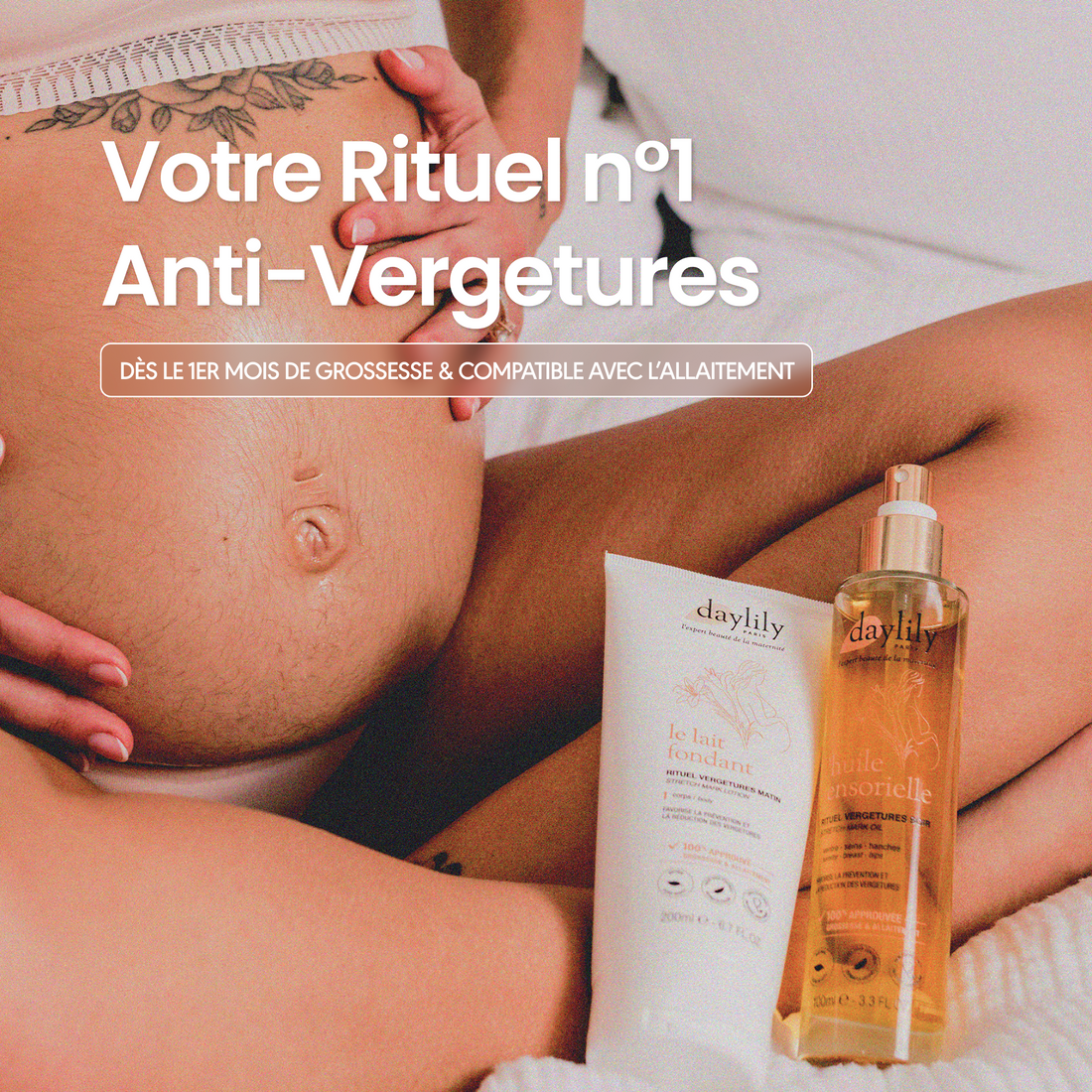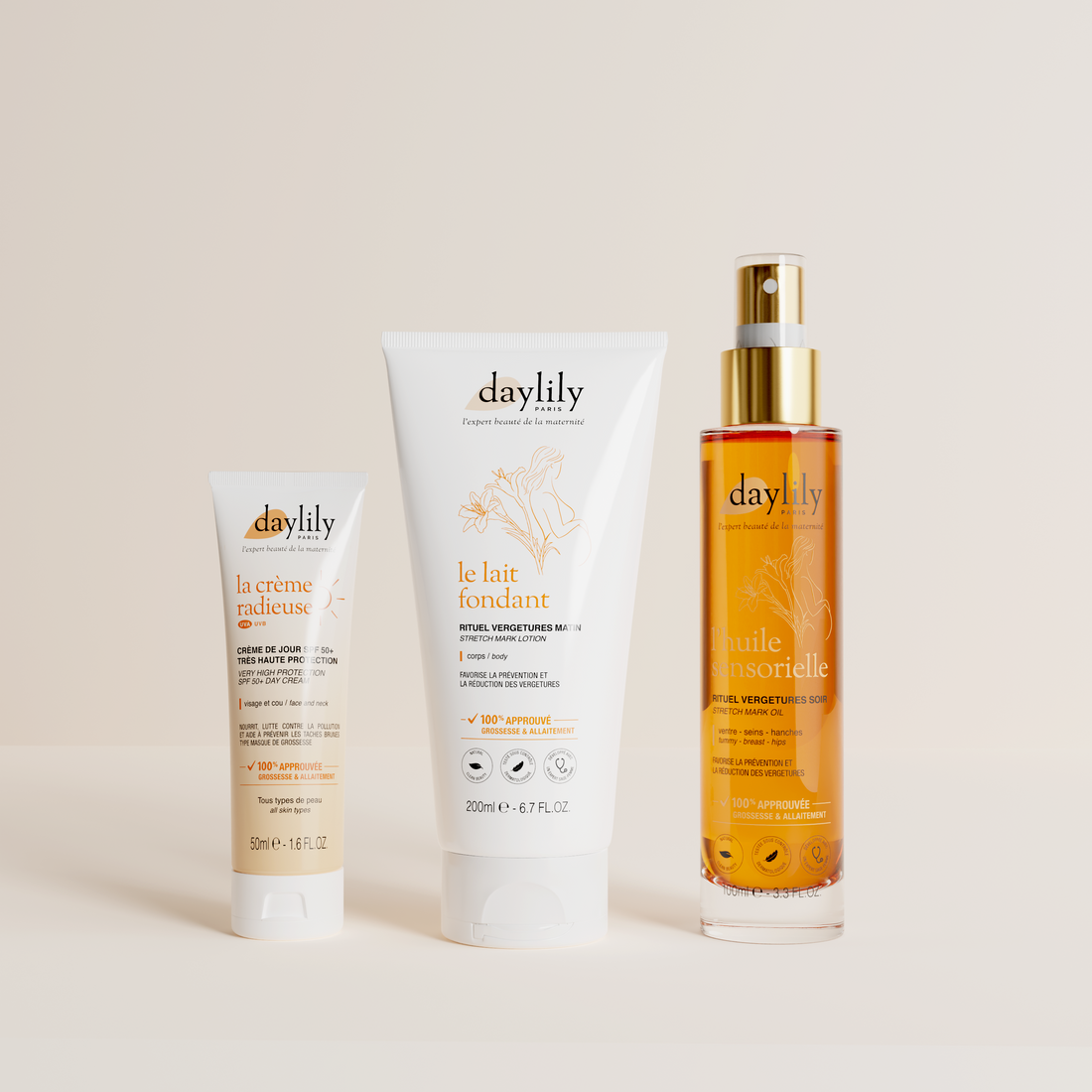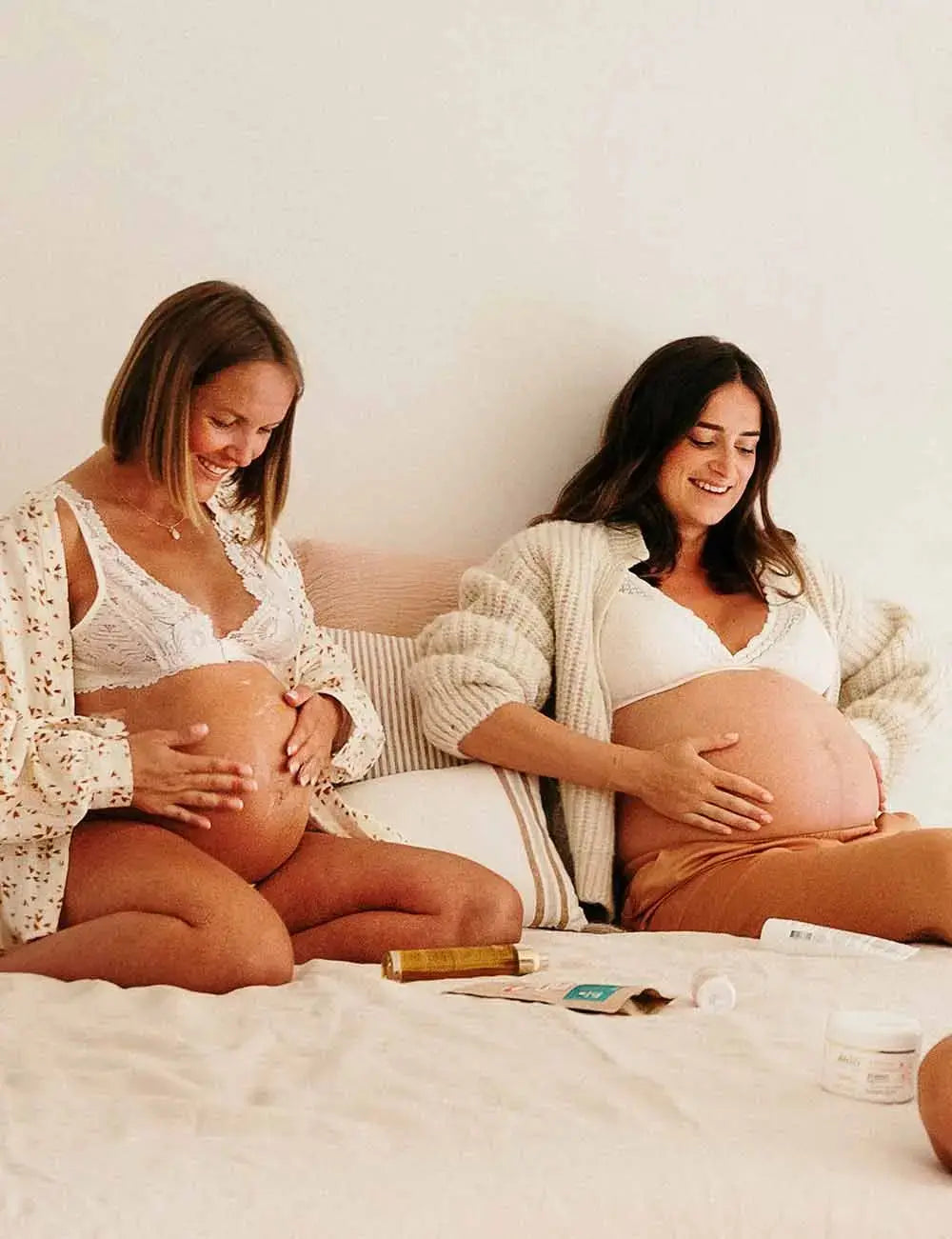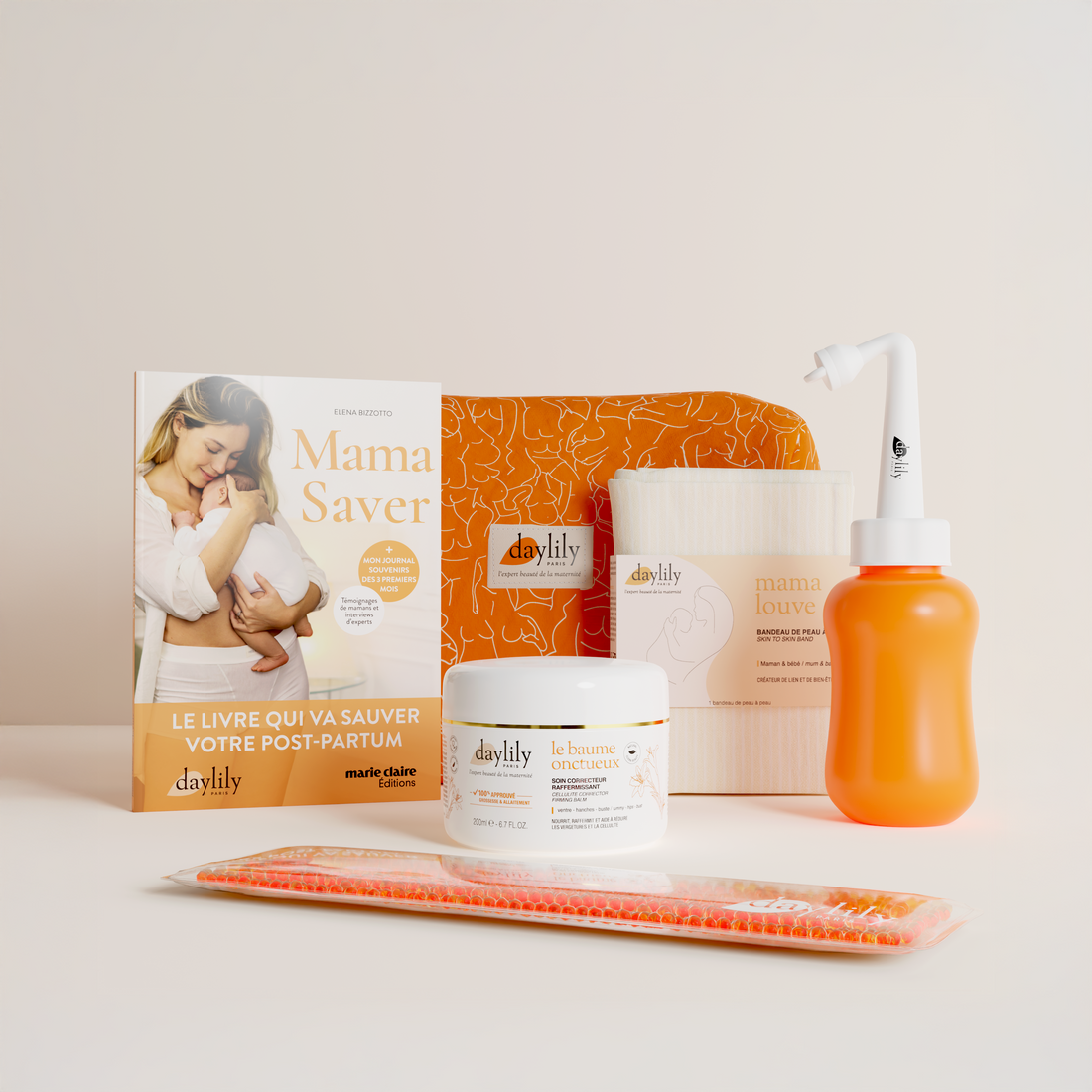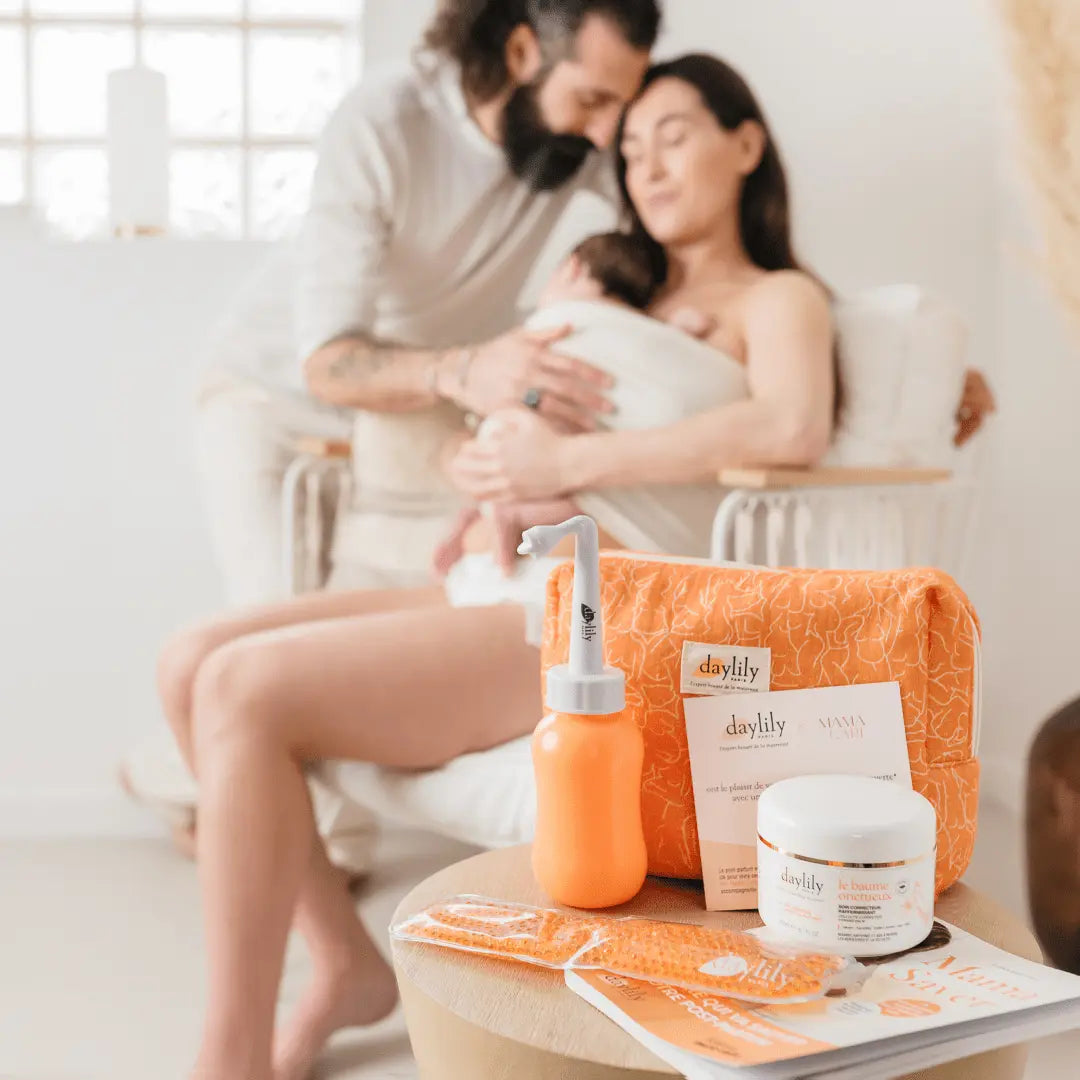- What is organic cosmetics?
- What are the positive points of organic cosmetics?
- What are the risks of organic care for pregnant women?
- So what care should you choose when you are pregnant?
For several years now, a real upheaval has been taking place in the cosmetics industry – and for good reason: the components harmful to our skin, our health and our environment present in our daily care products are being singled out by associations. , scientists and even politicians. En masse, consumers are starting to educate themselves and turn to healthier products . The emergence of applications like Yuka, Clean Beauty, INCI beauty, allows the most novice among us to make an informed choice.
When you are pregnant, it is imperative to review your face and body beauty routine in order to only use safe care , both for yourself and for your baby. Instinctively, many women will turn to drugstore brands, designed especially for expectant mothers. However, thinking that this is the best option would be a mistake, since many of them use controversial ingredients, or even proven to be harmful - if you want to avoid a specific component, you will have to check yourself. even the composition.
On the other hand, pregnant women prefer to favor so-called “organic” brands during their pregnancy, that is to say containing ingredients from Organic Farming , and excluding certain ingredients considered to be toxic and/or polluting. .
But is this choice always a good one ? Let's dissect the preconceived ideas about organic beauty together.
What is organic cosmetics?

Organic cosmetics is governed by labels , whose charters and requirements differ more or less. However, the specifications of organic labeled brands all share several points in common:
• Do not contain petrochemical or controversial ingredients.
• Respect a certain percentage threshold of ingredients of natural origin (on average 95% but not for all) and from Organic Farming (on average 20% for non-rinsed care)
• Do not test their formulations on animals
The objective of these labels is to provide greater transparency to consumers, that is to say, to help them better understand how their care has been designed and what it contains, in order to purchase in a more informed way. .
It is important to differentiate between “ingredients of natural origin” and “ingredients from organic farming”: while it is not uncommon to find organic beauty products with a high percentage of natural ingredients , the rate of Organic ingredients are much lower in comparison. Indeed, only plants can be grown in accordance with Organic Agriculture – water & minerals cannot be certified organic. For example, to be labeled organic by Cosmos, Ecocert and/or Cosmébio, a treatment must contain at least 10% organic ingredients if it is intended to be rinsed (shower gel, clay mask, facial cleanser, etc.). ) and 20% if it is not rinsed (serum, deodorant, body oil etc.).
What are the positive points of organic cosmetics?

If the label certifying the product has a very demanding charter (Nature & Progrès for example), you are (practically) sure that your skin is in good hands. To replace petrochemical substances such as mineral oil, brands are using ingredients of natural origin, such as vegetable oils.
By purchasing certified organic cosmetics, you also contribute to the development of Organic Agriculture : the plants from which the organic ingredients are extracted are grown without the addition of synthetic herbicides or GMOs.
Ingredients from organic farming have been shown to contain more nutrients beneficial to the skin than their counterparts obtained conventionally. It is for this reason that we made the decision to include organic oils in our treatments , namely macadamia nut, avocado, muscat rose, olive and sweet almond oil, in order to so that you can benefit from all their incredible properties .
What are the risks of organic care for pregnant women?
However, contrary to what one might think, certified organic treatments are not always compatible with pregnancy . It is not uncommon for them to contain ingredients of natural origin that are not recommended for the future mother and her baby in utero. Focus on the fake friends you absolutely need to know!
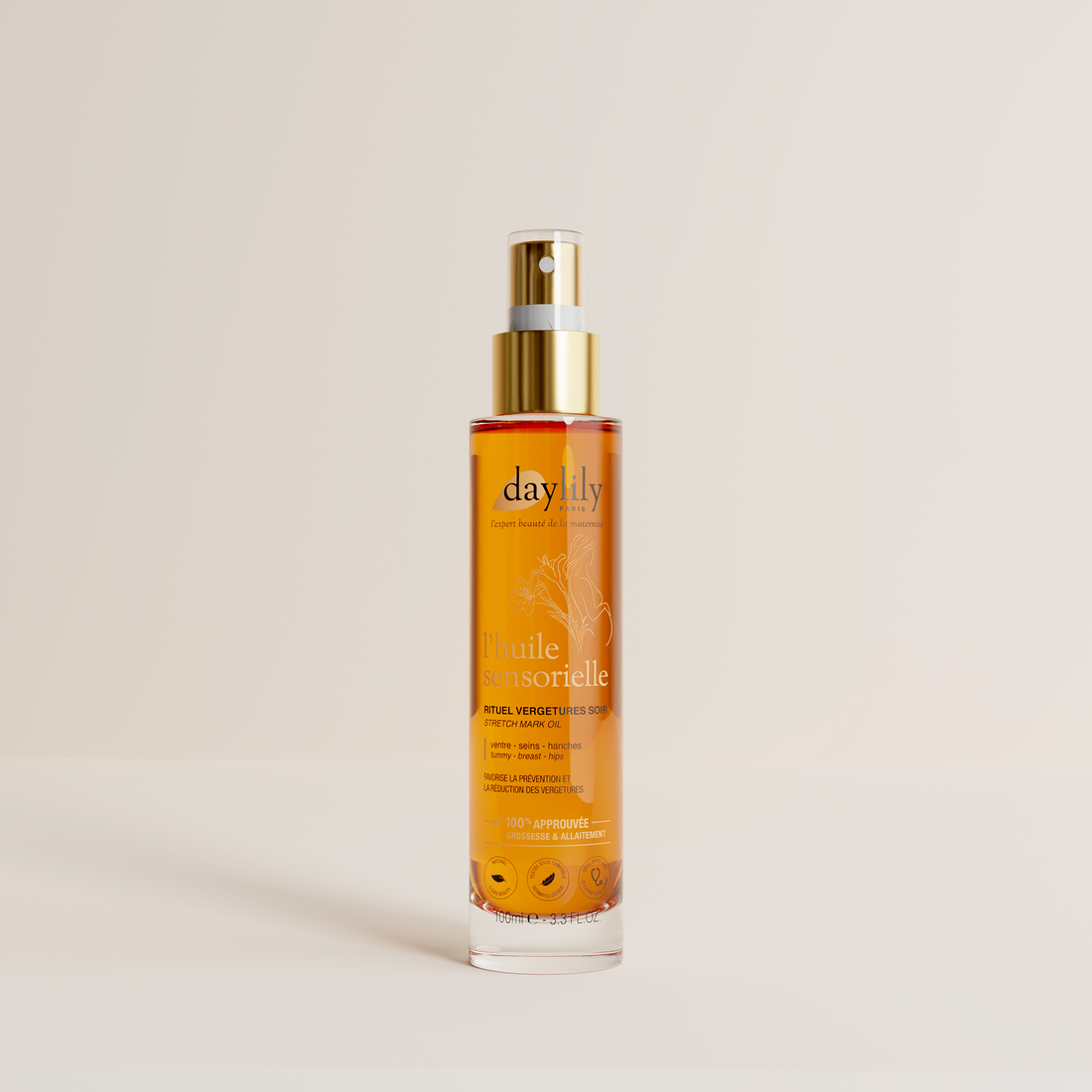
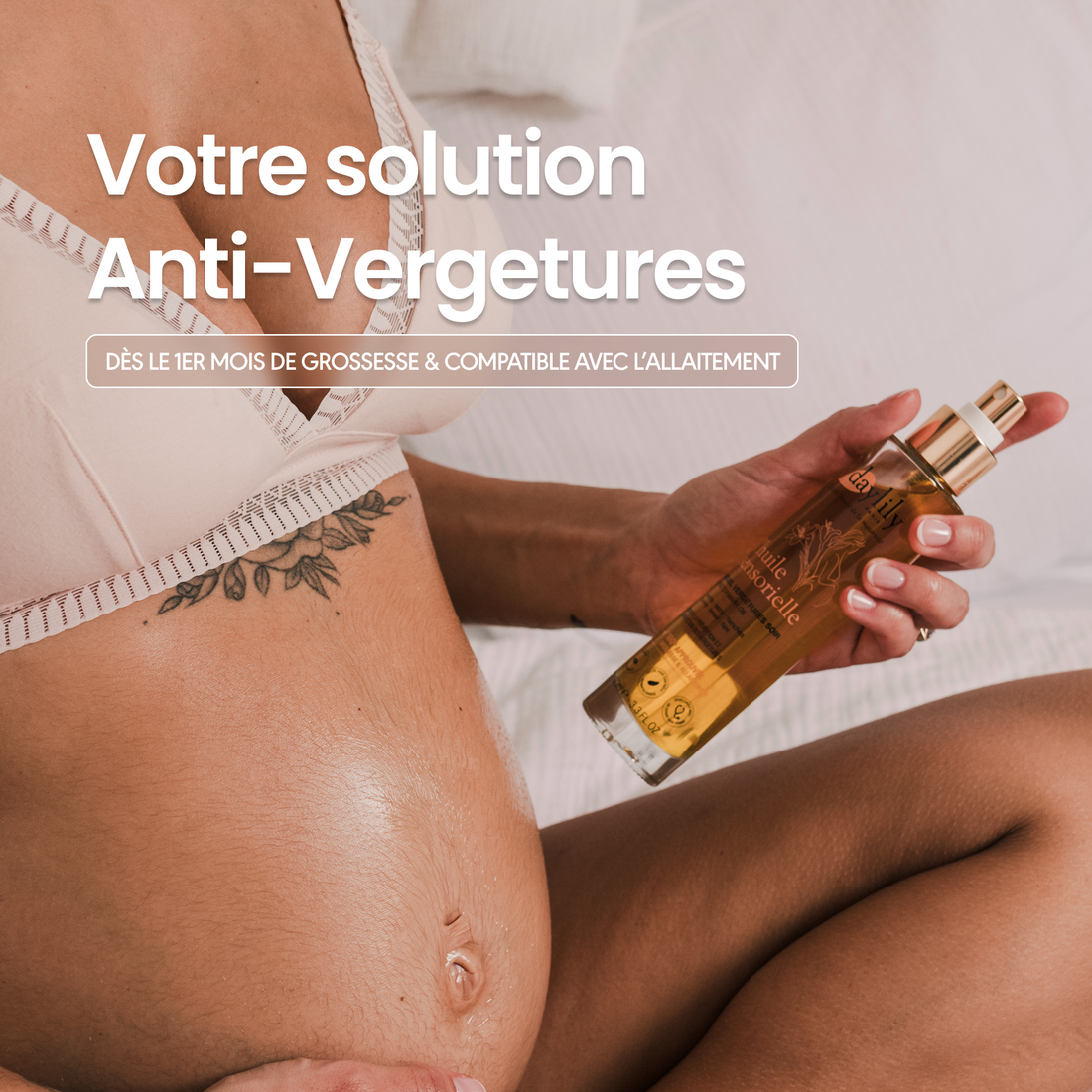
- Regular price
-
30,90 € - Regular price
-
- Sale price
-
30,90 €
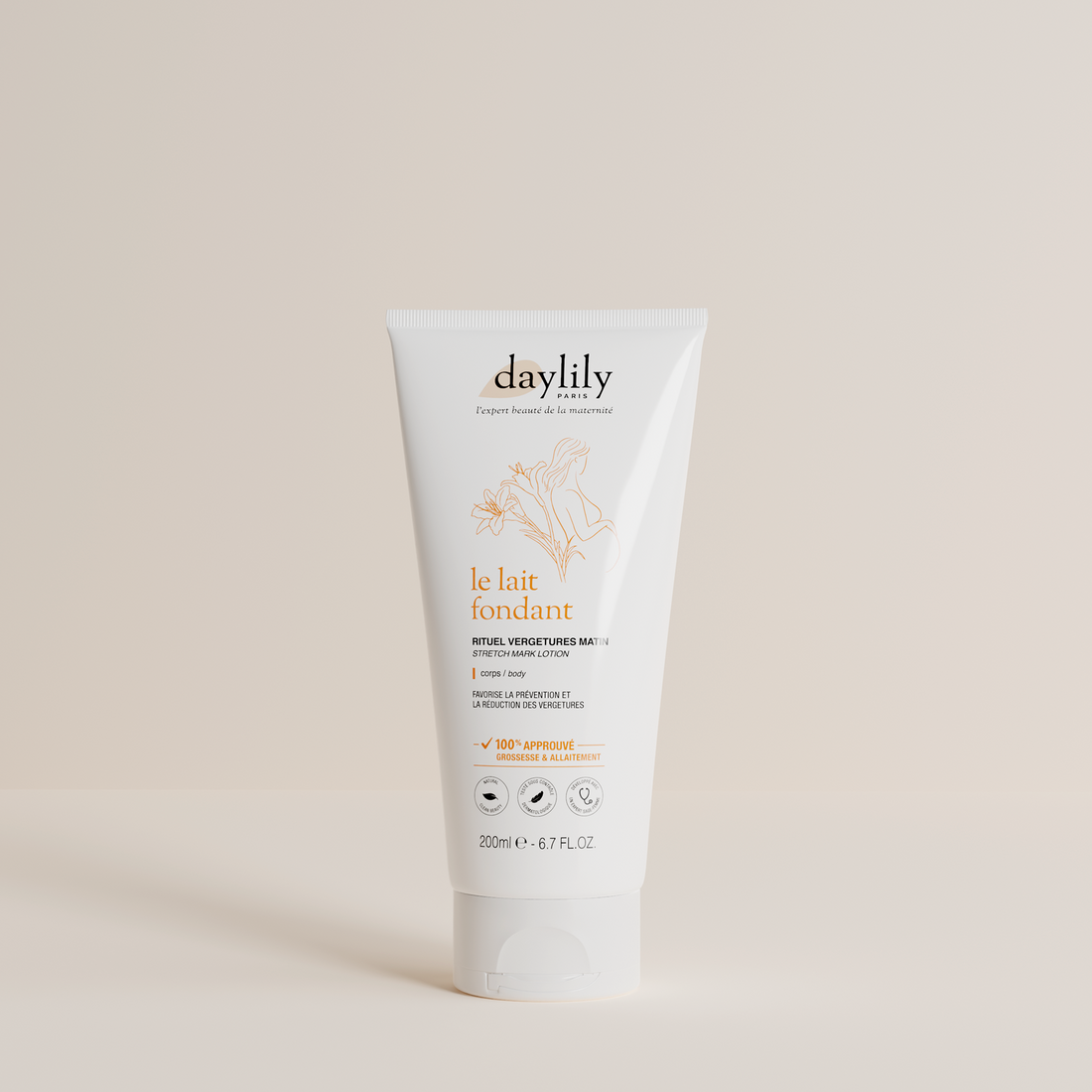
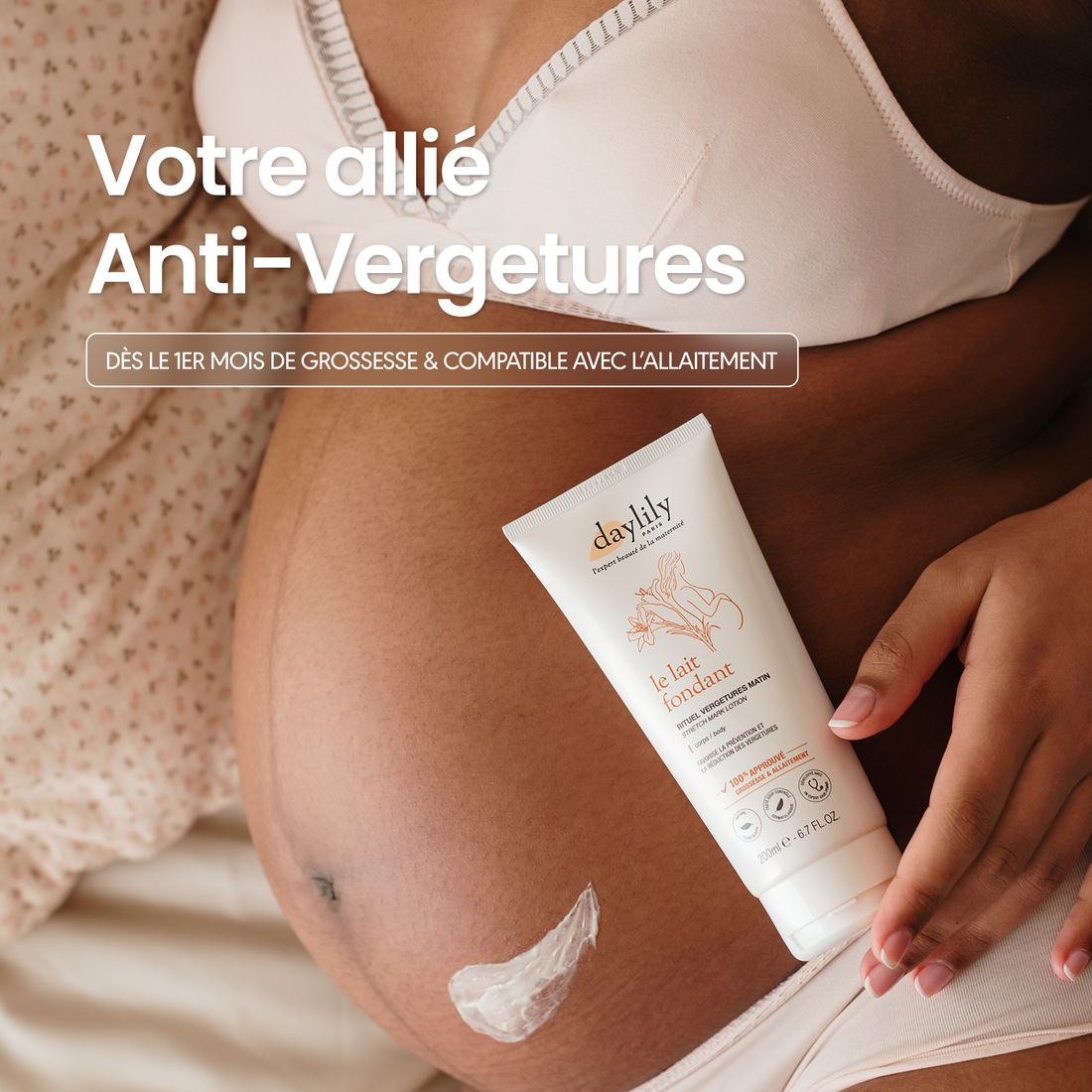
- Regular price
-
29,90 € - Regular price
-
- Sale price
-
29,90 €
Be careful with essential oils during pregnancy…

For several years now, organic cosmetics has been in the sights of the European Commission. And for good reason: if perfumes of synthetic origin are prohibited in the vast majority of labels, organic brands must turn to natural perfumes made from essential oils , which contain a significant quantity of allergens . In addition to their aromatic nature, you can also find essential oils as active ingredients, due to their multiple therapeutic properties.
Knowing that pregnant and breastfeeding women must at all costs stay away from essential oils , because of their harmfulness for the proper development of the fetus , it is better to take care and avoid them until the end of your pregnancy or until weaning the baby in case of breastfeeding. In addition, a number of studies have attested to the harmful consequences caused by the application of essential oils to the skin: phototoxicity, skin irritations and allergic reactions in particular. The most dangerous for pregnant women include peppermint, camphor and camphor rosemary oil. The latter two naturally contain camphor , a molecule known for its neurotoxic and abortifacient effects, which crosses the placenta. Therefore, it is absolutely necessary to ban any product whose composition includes camphor, in particular tiger balm. (This list of essential oils to ban during pregnancy is not exhaustive.)
To remedy this dilemma, we have developed in Grasse, the world capital of perfume, two completely safe synthetic fragrances for pregnant and breastfeeding women, containing no allergens or toxic components : no more essential oils, allergens, alcohol and endocrine disruptors. They have been previously tested with numerous pregnant women, so that they can please as many people as possible. Find these two ultra- sensory and feminine fragrances in our 4 treatments: the scent of Huile Sensorielle and Crème Radieuse is deliciously biscuity while that of Lait Fondant and Balm Creamy is fresh and delicately floral .
If you are an organic addict, be sure to identify the presence of essential oils in the composition of your beauty products. It is quite easy to recognize them: the allergens they contain are necessarily placed at the end of the list , such as cinnamal, coumarin, geraniol or even linalool.
In addition to essential oils, you should also avoid aluminum salts, which are generally found in deodorants. Also be careful with organic deodorants which may contain baking soda or magnesium hydroxide, both of which can cause irritation. This is why we recommend that you turn to a natural deodorant whose composition is clean and 100% compatible with pregnancy and breastfeeding. At Daylily Paris, we have formulated a deodorant for pregnant women enriched with arrowroot powder. This alternative active ingredient to baking soda naturally absorbs moisture and provides a silky feel to the skin!
…and other harmful ingredients that are unsuspected at first glance!
In addition to essential oils, there are unfortunately other natural components to avoid, which at first glance could seem completely harmless or even beneficial to us...
Who doesn't know the incredible virtues of aloe vera gel? Natural, highly hydrating, healing, soothing, in theory it has it all! But unfortunately recently published studies have shown the harmful consequences that the aloin molecule , present in the sap, could have on pregnancy. Orally and cutaneously, aloe vera gel could cause uterine contractions and would therefore have abortive properties, in addition to being the cause of skeletal abnormalities . And these catastrophic effects for pregnant women have also been observed with castor oil , although it is so beneficial for acne-prone skin and hair growth. It contains ricin , an extremely toxic poison which, like aloin, would pass the skin barrier and could therefore cause an unwanted abortion.
Less extreme but can cause sensations of irritation, burning, dryness or even redness or tingling, alcohol is also often present in organic care and is not recommended during pregnancy.
But then why do we find a plethora of organic cosmetics recommended during pregnancy and breastfeeding which contain these components? Quite simply because the research showing their potential toxicity is still very recent ! Toxicological studies are constantly updated and the cosmetics industry must constantly adapt to these new discoveries . Did you know that just 30 years ago, it was common to serve a glass of red wine to future mothers bedridden in the maternity ward? Since then, everyone knows that even the slightest drop of alcohol should be absolutely avoided during pregnancy.
The activity of aloin on the uterus has only recently been documented, it is quite common to still find products containing it on the market, the formula of which was validated before the publication of these latest advances. scientists.
As the risk of interaction with the fetus is not very high, the authorities are not imposing an end to the marketing of specialized pregnancy products containing aloe vera or castor oil. It is not because you have used a treatment containing these active ingredients that your child will be born prematurely or worse that you will suffer a miscarriage! Just like 30 years ago, many children were born in perfect health even though their mothers regularly drank wine during their pregnancy – you are surely part of this generation ;)
But in the years to come, any new natural cosmetics designed for pregnant and breastfeeding women will contain neither aloe vera gel nor castor oil, and the most ethical brands are certainly reformulating the compositions of their products to eliminate these potentially harmful ingredients.
Organic labels are therefore not guarantees of safety during pregnancy and breastfeeding. Outside of these two exceptional periods, the use of organic cosmetics is on the contrary strongly recommended , except of course for reactive skin with allergic conditions.
So what care should you choose when you are pregnant?

To be sure to use safe care for your skin, your health and that of your baby, turn to natural care whose compatibility with pregnancy and breastfeeding has been proven and clinically validated by an expert toxicologist from the 1st month of pregnancy . And don't trust brands claiming that their products are compatible with pregnancy and breastfeeding without having obtained the agreement of this expert! During this pivotal time in your life and that of your baby, it is better to be too careful than not enough. For the more patient among you, do not hesitate to carefully read the INCI lists of the cosmetic products that you wish to use during your pregnancy, in order to identify the Latin terms of the substances to avoid. These precautions to take are valid for any cosmetic or hygienic treatment that you apply to your skin and hair (make-up, cream, lotion, deodorant, shampoo, mask, etc.)
At Daylily Paris, we have taken care to take into account all the requirements that pregnant women may have. This is why not only do our beauty products contain a maximum number of ingredients and active ingredients of natural origin , but are also free from any controversial , potentially harmful or simply not recommended components during pregnancy and breastfeeding: no endocrine disruptors, phenoxyethanol, silicones, essential oils, parabens, alcohol, aloe vera, castor oil, nanoparticles or allergens. We do not test on animals and do not use any ingredients of animal origin . Suitable for the most sensitive skin, Daylily Paris treatments can be used and certified by an expert toxicologist from the first month of pregnancy and during breastfeeding. We have done everything possible to combine naturalness , safety and effectiveness , while prioritizing sensoriality for a real pleasure of daily use . Pampering your body becomes a break of softness and well-being, without the hassle!
You will have understood: if you want to adopt a beauty routine that is safe for you and your baby, it is better to opt for 100% pregnancy-friendly natural cosmetics - whether organic or not!
















